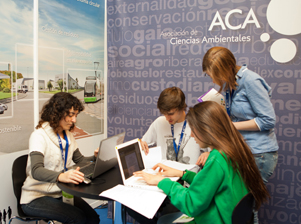Patrocinadores


























Búscanos en Facebook
Coorganizadores



























Analizing the interdependence of renewable energy and wealth generation.
|
Autor:
Elena López-Bernabé Universidad de Castilla-La Mancha |
|
| Otros autores: Carmen Córcoles (Universidad de Castilla-La Mancha); Inmaculada Carrasco (Universidad de Castilla-La Mancha). | |
|
Tipo:
Comunicación técnica escrita / Comunicación técnica panel |
|
| Temática: Energía, eficiencia y cambio climático | |
|
|
|
| Documentos asociados: Doc. Escrito Doc. Panel | |
|
|
|
|
Resumen: |
|
|
Climate policy raises some of the most important and complex issues in public policy making. It involves aspects such us: ethical choices, international cooperation, development and deployment of new technologies, interaction with other environmental problems, and economic calculations of costs (Ackerman 2014). The pressure put on natural resources will increase during the next years, as a consequence of the world population’s growth and the effects of new emerging classes’ rise. Then, the competition among states and business to assure the natural resources supply, will turn the nonconventional energies exploitation into a relevant focus of world economy and geo-policy (PwC 2016), all of that in a context of neighbour countries’ energetic interconnection. Climate policy leadership is not only the right thing to do; it can be a source of innovation and comparative advantage in the world economy (Ackerman 2014). In the present context of uncertain global green policy, policy response has had a lack of ambition and coordination. Besides that, the facts demonstrate the relevance of the adopted measures: new investment in clean energy surpassed investment in conventional energy generation in 2010 (Dimitri, 2016) and renewable energy (RE) generation and energy efficiency investment has quadrupled since 2004 according to Bloomberg New Energy Finance. Thanks to this energetic efficiency, it is estimated that the necessary amount of energy to generate 1 unit of GDP will be reduced by 36% between 2012 and 2035 (BP, 2015). The studies on RE frequently underestimate the socio-economic effect of such invests. The investment in a renewable energy plant contributes positively to the economic growth and the wealth of society by the increase of services and goods demand, and the employment creation. It also produces a demand effect, due to the necessary production of the components (wind turbines, solar wafers, etc.), the construction of the plant, services of transport, employees of researching and maintenance, etc. Considering exports and global markets, helps to understand better the effects and dynamics of countries which have developed a renewable energy industry sector (Lehr 2012). Then, RE sectors have brought significant changes to the current industrial structure of countries, in the demand side of the labour market and in the management of economic policy goals, as the impact of environmental policies in economic growth and wealth is a main worry for policy makers (Cai 2014). Taking into account the previous statements, the main aim of this paper is to estimate socioeconomic benefits of RE’s introduction in Spain. More concretely, the goal is to calculate the effects in economic activity and job creation, in the national different productive sectors. Effects on the resting European Union countries and on the rest of the world (RW) will be considered. |
|





